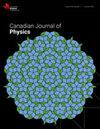应用x射线解释合金化对镍硼氮金属基复合材料3d和4s4p电子居群的影响
IF 1
4区 物理与天体物理
Q3 PHYSICS, MULTIDISCIPLINARY
引用次数: 0
摘要
本实验采用电化学沉积法制备了镍硼合金和镍硼氮合金。利用能量色散x射线对镍硼合金和镍硼氮合金进行了表征。用x射线衍射分析了镍硼合金和镍硼氮合金的晶体结构。利用能量分散x射线荧光光谱仪从样品中收集x射线光子。利用样品的辐射x射线光子数来计算Kβ/Kα强度比。理论库仑和巴布什金量规被用来计算3d和4s4p电子的居群。观测数据表明,来自4s3d轨道的屏蔽效应、杂化、能级变化和电荷转移机制可能是导致3d和4s4p电子居群变化的原因。为了澄清所有这些计算得出的结论,本研究将结果与纯镍的结果进行了对比。本文章由计算机程序翻译,如有差异,请以英文原文为准。
Application of X-rays to interpret alloying effects on the 3d and 4s4p electron populations of nickel boron nitrogen metal matrix composites
For this experiment, the nickel-boron and nickel-boron-nitrogen alloys are created using the electrochemical deposition method. Utilizing energy dispersive X-ray methods, the nickel-boron and nickel-boron-nitrogen alloys are characterized. X-ray diffraction was used to examine the crystal structure of nickel-boron and nickel-boron-nitrogen alloys. An energy dispersed X-ray fluorescence spectrometer is used to gather X-ray photons from the present samples. The number of radiated X-ray photons from the present specimens is used to compute the Kβ/Kα intensity ratios. The theoretical Coulomb and Babushkin gauges are used to calculate the populations of the 3d and 4s4p electrons. The observed data imply that shielding effects from 4s3d orbitals, hybridization, changes in energy levels, and charge transfer mechanism may be the causes of the variance in 3d and 4s4p electron populations. In an effort to clarify the conclusions drawn as a result of all these computations, this study contrasts the results with those of pure nickel.
求助全文
通过发布文献求助,成功后即可免费获取论文全文。
去求助
来源期刊

Canadian Journal of Physics
物理-物理:综合
CiteScore
2.30
自引率
8.30%
发文量
65
审稿时长
1.7 months
期刊介绍:
The Canadian Journal of Physics publishes research articles, rapid communications, and review articles that report significant advances in research in physics, including atomic and molecular physics; condensed matter; elementary particles and fields; nuclear physics; gases, fluid dynamics, and plasmas; electromagnetism and optics; mathematical physics; interdisciplinary, classical, and applied physics; relativity and cosmology; physics education research; statistical mechanics and thermodynamics; quantum physics and quantum computing; gravitation and string theory; biophysics; aeronomy and space physics; and astrophysics.
 求助内容:
求助内容: 应助结果提醒方式:
应助结果提醒方式:


